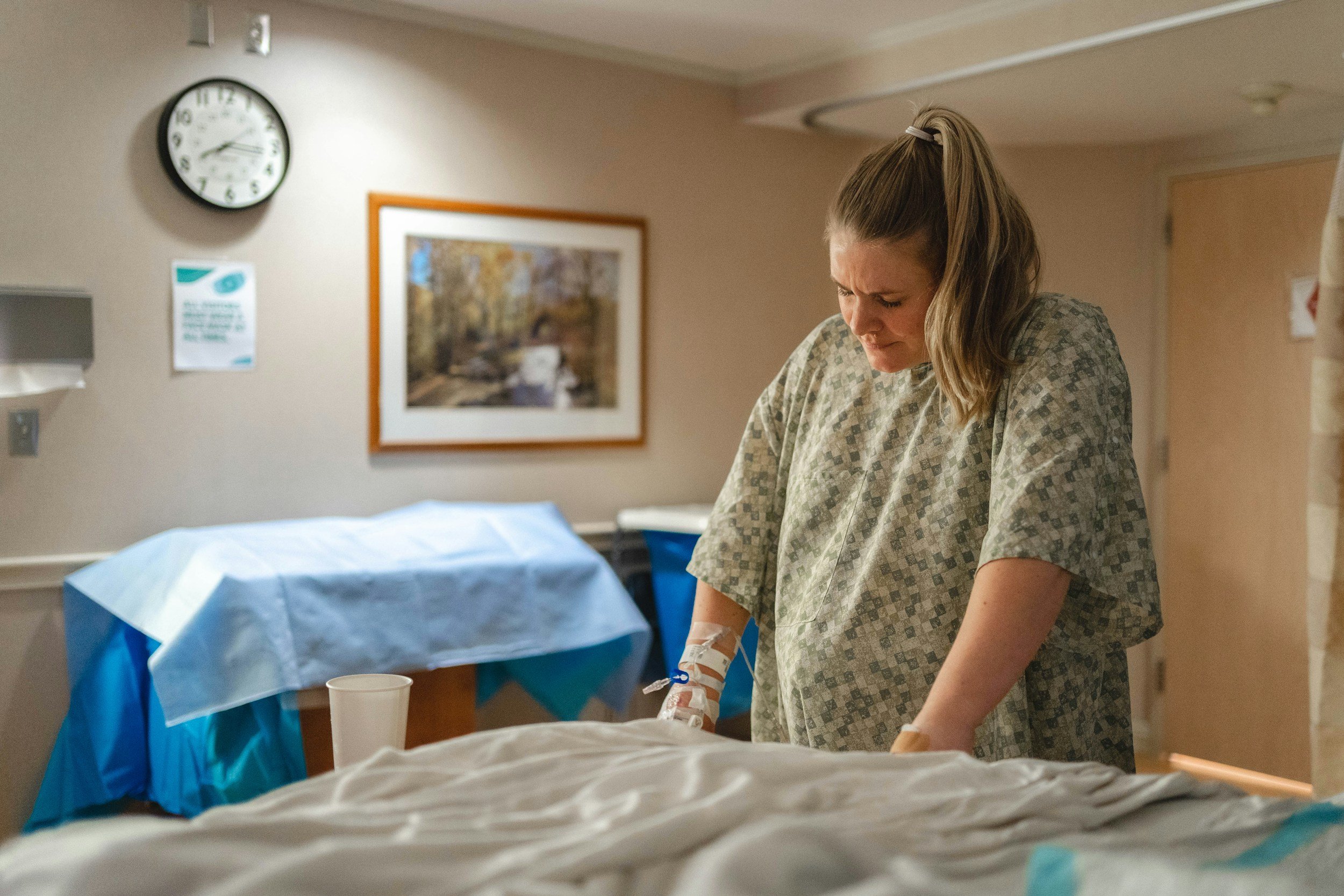Walking into a big Manhattan hospital in labor can feel like stepping onto another planet—bright lights, new faces, unfamiliar sounds. As a doula and midwife who has supported families in New York City hospitals, I’ve noticed patterns that might help you feel more prepared and less intimidated.
Here is what I often see at Mount Sinai West and other NYC hospitals—and how you can navigate it with more confidence.
1. The triage shuffle
In many New York City hospitals, the first stop is triage: a small room or area where nurses monitor your contractions, baby’s heartbeat, and cervical dilation.
What I see:
Parents unsure what’s happening, or afraid to “bother” the staff.
A lot of waiting and monitoring.
Decisions being made quickly, in medical language.
How a doula can help:
Translating medical terms into clear, simple language.
Helping you communicate your preferences (movement, dim lights, intermittent monitoring if appropriate).
Keeping you grounded with breathing and comfort measures while things are being assessed.
2. The rhythm of a busy labor floor
Manhattan hospitals are busy. Nurses and doctors often care for several patients at once. This doesn’t mean you’re not important—it means you may need someone whose only job is to focus on you.
What I see:
Staff doing their best, but often rushed.
Parents hesitant to ask for what they need (more pillows, different positions, dimmer lights).
How a doula can help:
Creating a calmer environment—lights down, curtains drawn, music if you like.
Remembering your preferences and gently reminding staff when needed.
Suggesting positions and comfort measures that work with monitors, IVs, or epidurals.
3. Epidurals, inductions, and “is this normal in NYC?”
Many births in New York City include inductions or epidurals. Sometimes they’re medically necessary; sometimes they’re offered for convenience.
What I see:
Parents surprised by how many decisions they have to make.
Anxiety around “falling behind” or “failing” if they change their plan.
How a doula can help:
Offering non-judgmental support whether you choose epidural, unmedicated birth, or something in between.
Helping you ask good questions: “What are the benefits and risks?” “Are there alternatives?” “What happens if we wait an hour?”
4. After the birth: the whirlwind
Once your baby arrives, everything moves quickly: checks for you and baby, possible NICU evaluations, moving to a postpartum room, visitors, forms, and more.
What I see:
Parents exhausted, but still being asked to make decisions.
Breastfeeding or chestfeeding started… and then suddenly interrupted.
International parents feeling especially alone if family is far away.
How a doula can help:
Protecting the first hour or two as much as possible for skin-to-skin and feeding.
Helping you start breastfeeding and showing you how to hand-express if needed.
Reminding you to eat, drink, and rest as much as hospital routines allow.
You’re allowed to need support
New York City hospitals contain incredible professionals, but they also work within a system that can feel impersonal and fast-paced. A doula’s role is to bring humanity, continuity, and calm into that environment.
If you’re planning to give birth at a Manhattan hospital and want someone by your side who knows the NYC system and supports your choices, you can read more about my birth doula services here.
